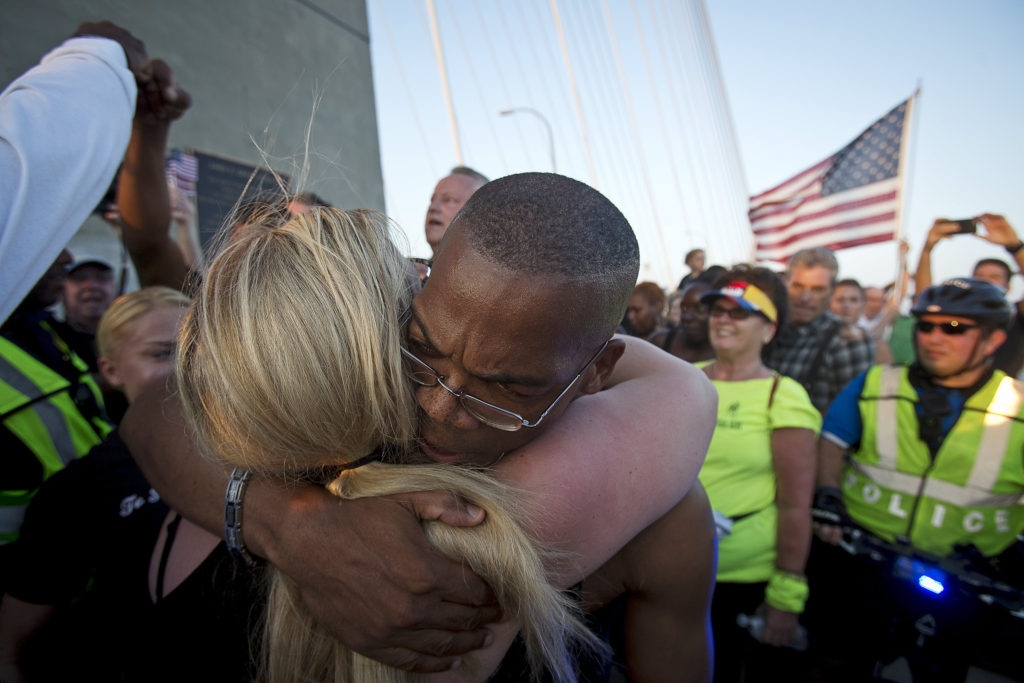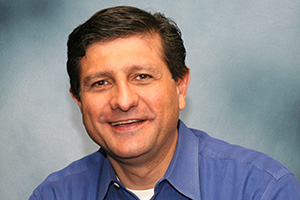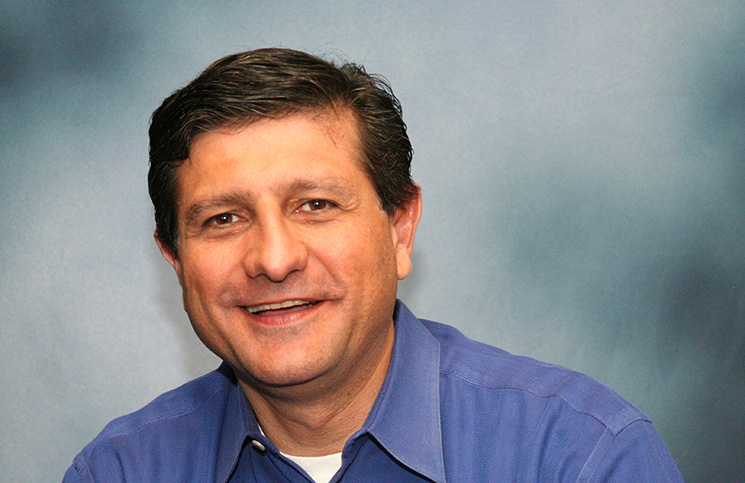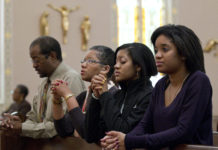
[dropcap type=”4″]T[/dropcap]he last few years have been marked by more than a few unexpected tragic incidents involving gunmen lashing out at innocent people. There are things we can do as a society to try to prevent these events in the future or to mitigate the effects of these events. And those can and will be discussed by our talking heads and our policy makers.


But more than anything we can refuse to allow this type of activity to win. We can refuse to allow such culprits to dominate the conversation and our culture. And we can do that by replacing their hate with love. It’s a little idea that Jesus Christ left us with a few thousand years ago. And it’s one that can and is making amazing things happen in the world.
First of all, it’s what inspired the family members of the nine victims last month after their loved ones were brutally gunned down in South Carolina. One by one they faced the man who shot and killed members of their family and forgave him. One by one they insisted that love would win. And one by one they took the power of this event from negative to positive.
A daughter of Ethel Lance, 70, who left five children, seven grandchildren and four great-grandchildren behind said: “I will never be able to hold her again. But I forgive you and have mercy on your soul. It hurts me, it hurts a lot of people, but God forgives you and I forgive you.”
The sister of the Rev. DePayne Middleton-Doctor, 49, who was a mother of four said: “We have no room for hate. We have to forgive.”
“We are here to combat hate-filled actions with love-filled actions,” declared Alana Simmons whose grandfather, the Rev. Daniel Lee Simmons, Sr., was killed. “And that is what we want to get out to the world.”
Some with agendas of one sort or another have tried in vain to minimize the significance of these powerful expressions of forgiveness. But all that hot air just lifts higher the real and undeniable power of these acts to change the mindset and direction of a nation that has of late been resonating with a little more violence and hate than any of us would like. Their words of forgiveness made the front pages of most papers in America, and rightfully so, redirecting the media coverage from the horror of the act to the magnificence of the forgiveness.
One by one they faced the man who shot and killed members of their family and forgave him. One by one they insisted that love would win. And one by one they took the power of this event from negative to positive.
And it inspired what so many protests, marches, and exaltations of so many of those talking heads over the last 50 years could not. It inspired the leaders of that state to remove the age-old symbol of division and hatred from their state house — the Confederate flag.
Now this isn’t the first time victims’ families have forgiven a killer. But every time it happens, amazing things follow. I interviewed a man a few years back named Billy Moore who was on the forgiving end of that. One night after his wife left him and cleaned out his bank account, leaving him in a depressed haze, he got drunk, and went to rob an elderly man of his life savings. When the old man confronted him, he shot him dead in cold blood. He confessed to the killing less than 24 hours later and was sentenced to death a few months later.
But after the victim’s family went out of their way to forgive him, he had an amazing conversion of faith and feeling while on Death Row. He wound up reaching out to young people, to gang members, to inner city children all over America who were caught in the destructive downward spiral of hate, and turning their heads and hearts to love. He stopped prison riots and saved lives of those behind bars with him. And he joined with the family members of his victims to help members of their community to see another way, all from behind bars.
His extraordinary acts caught the attention of Mother Teresa who called the governor of Georgia just hours before Billy was to be executed asking for his life to be spared. Amazingly it was. And then even more incredibly, Billy was released a few years later with the victim’s family’s blessings. Today he travels the country and the world turning hate to love.
Now this column isn’t about ending the death penalty in America, although every Catholic out there should want to. What this column is about is convincing you that love is more powerful than hate, that life can conquer death, and that we should believe the words in the first letter of John that read: “Beloved, let us love one another, because love is of God; everyone who loves is begotten by God and knows God” (1 Jn. 4:7).
And God — and love — can make amazing things happen in every one of our lives.





![[VIDEO] Make Sunday feel like Sunday again](https://www.catholicsun.org/wp-content/uploads/2021/04/2021-YOUTUBE-BISHOP-MESSAGE-THUMBNAIL-ENGLISH-218x150.png)
